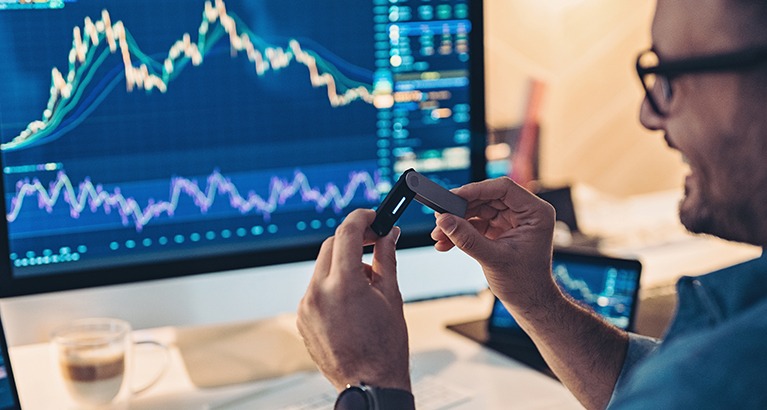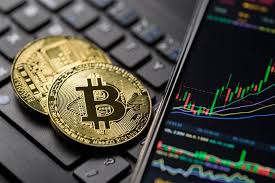
Understanding the Intricacies of Crypto Futures Trading
Crypto Futures Trading has emerged as one of the most exciting and dynamic areas of the financial markets. With the advent of digital currencies like Bitcoin and Ethereum, traders are increasingly looking for ways to profit from the volatility of these assets. Futures trading allows traders to speculate on the future price movements of cryptocurrencies without actually owning the underlying assets. In this article, we will explore the key concepts, strategies, and risks associated with Crypto Futures Trading. For more detailed insights, you can visit Crypto Futures Trading https://icmsmt.com/list565/.
What are Crypto Futures?
Crypto Futures are contracts that allow traders to buy or sell a specific amount of a cryptocurrency at a predetermined price on a future date. These contracts are standardized and traded on futures exchanges, making it easier for participants to enter and exit positions in the market. The underlying asset can be any cryptocurrency, but Bitcoin and Ethereum are the most commonly traded futures contracts.
How Do Crypto Futures Work?
When a trader enters into a futures contract, they agree to the price at which they will buy or sell the cryptocurrency at a later date, referred to as the contract’s expiration date. Here are a few key points about how crypto futures work:

- Leverage: One of the attractive features of futures trading is the ability to use leverage. Traders can control larger positions than their initial investment by borrowing funds from the exchange. While leverage can amplify profits, it also increases the risk of significant losses.
- Margin: To open a futures position, traders are required to deposit a margin, which is a fraction of the total contract value. This margin acts as collateral for the trade, allowing the exchange to cover potential losses.
- Settlement: Futures contracts can be settled either in cash or through physical delivery. In the case of cryptocurrencies, most contracts are settled in cash, meaning traders only exchange the difference in price rather than the actual cryptocurrency.
Types of Crypto Futures Contracts
There are two primary types of crypto futures contracts:
- Traditional Futures: These contracts have a fixed expiration date and are settled at that time. Traders must either close their positions or be prepared to settle the contract in cash.
- Perpetual Futures: Unlike traditional futures, perpetual contracts do not have an expiration date. This allows traders to hold positions indefinitely, making them a popular choice for many traders who want to speculate on price movements without the pressure of a deadline.
Strategies for Crypto Futures Trading
Successful crypto futures trading requires a solid understanding of market trends and the implementation of effective trading strategies. Here are some popular strategies that traders often employ:
- Hedging: Many traders use futures contracts to hedge against potential losses in their cryptocurrency portfolios. By taking a short position in futures, they can offset potential declines in the value of their holdings.
- Scalping: This short-term strategy involves making quick trades to capitalize on small price movements. Traders using this strategy often enter and exit positions multiple times within a single day.
- Trend Following: This strategy involves identifying and following market trends. Traders analyze charts and indicators to determine the direction of the market and trade accordingly.
Risks of Crypto Futures Trading

While crypto futures trading offers significant profit potential, it is also fraught with risks. Understanding these risks is essential for any trader considering entering the market. Here are some key risks to be aware of:
- Market Volatility: Cryptocurrencies are known for their extreme price volatility. Sudden price swings can result in significant gains or losses within short time frames.
- Leverage Risks: While leverage can magnify profits, it also increases the potential for losses. Traders can lose more than their initial investment if they are not careful with their positions.
- Regulatory Risks: The regulatory environment surrounding cryptocurrencies is constantly changing. New laws or regulations can impact the trading of crypto futures and the legality of the underlying assets.
Getting Started with Crypto Futures Trading
If you are considering entering the world of crypto futures trading, here are some steps to help you get started:
- Educate Yourself: Before you start trading, it is crucial to educate yourself about the market, different trading strategies, and the specific futures contracts you are interested in.
- Select a Reputable Exchange: Choose a reliable exchange that offers crypto futures trading. Look for platforms with a good reputation, low fees, and a user-friendly interface.
- Practice with a Demo Account: Many exchanges offer demo accounts that allow you to practice trading without risking real money. Utilize these accounts to familiarize yourself with the trading platform and develop your strategy.
- Start Small: When you feel ready to trade with real money, start with a small investment. This will allow you to gain experience and build confidence without exposing yourself to significant losses.
Conclusion
Crypto Futures Trading presents unique opportunities and challenges for traders. By understanding how futures contracts work, implementing effective strategies, and managing risks, traders can navigate this exciting market. As the cryptocurrency landscape continues to evolve, staying informed and adaptable is key to success in crypto futures trading. Remember, thorough research, patience, and discipline are your best allies in this fast-paced environment.


